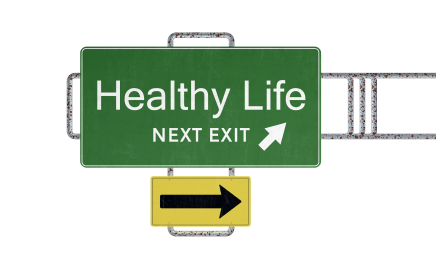Bariatric Diets without Surgery
The restrictive diet that is prescribed after a typical Bariatric surgery, performed on obese patients, can be quite helpful for those who primarily seek to reduce weight and retain their fitness. However, it may not be necessary to undergo this surgery to follow such a diet. The basic idea behind such a diet is to get optimum nutrition with the least amount of consumed food, ultimately cutting down on calories. It even suggests few changes in the day to day lifestyle, like weight monitoring as well as awareness of well-being. Weight maintenance is the key component of this diet.
Bariatric Diets mostly prescribe a protein-rich diet, with protein forming about 50 per cent of total food intake. As animal products are the most nutrient rich source of protein, people seeking to lose weight rapidly through a Bariatric diet without surgery should include fish, poultry, meat, eggs, nuts and legumes into their diet. Before following this diet, it is however, recommended to consult a dietician.
Healthier ways of getting protein for the purposes of bariatric diet are the liquid foods such as high-protein shakes and soups rich in protein-rich ingredients. It helps you get a good amount of nutrition without having to consume a lot of calories in the food. The ideal diet prescribed for obesity patients after their bariatric surgery is one which contains 60 grams of protein each day and less than 10 grams of sugar in a meal.
The difference between the diet after surgery and one without it is that the fat is pureed in the former. Those who take the bariatric diet without the surgery need not bother about the fat, although they need to limit the amount of fat they take.
The calorie intake level to be maintained should not go below 1000 per day in order to ensure proper weight loss. You need to manage your calorie intake in a way that the body does not go back into fat storage mode. For that, you must have at least 1000 calories, as below this level, the body react unfavourably and starts holding on to fat, hence compounding your problems in weight loss.
Monitoring your condition to ensure that lost weight does not come back is one of the most important parts of weight management. Overweight people should be proactive about not allowing even a little bit of weight regain after they lose it.
-
Weight Loss Supplements:
There are many people who would love to have some pill that helps mel
-
What causes belly fat?
The culprit here is high levels of the stress hormone cortisol. When y
-
Making Peace with Food & Your Body
Imagine a world where our bodies were all considered equally beauti
-
What’s Your Reason to want the Top Weight Loss Supplements?
When we accumulate a few more pounds than we need, one of the first
-
5 Ways to Lose 20 pounds By Christmas
Ready to transform your life with a safe
-
Elite Personal Trainer Shares 5 Tools To Melt The Fat This Winter
Dont be held hostage to the obligatory holiday weight gain. Instead, m
- DON'T MISS
- Water For Weight Loss
- Right Is To Wrong As Health Is To Profit
- Starting Exercise Routines: For Women Who Don't Normally Physical exercise
- Burn more Fat with The Right Foods and Exercise
- Diet The 3 Most Important Tips To Lose Weight FAST
- Diabesity
- Type 2 Diabetes – Nutrition Basics
- Can I Lose Weight With A Raw Diet Weight Loss Method?
- Good For Your Hips And Also For Your Heart Why Cardiologists Want You To Go LowCarb
- Holiday Tips to Keep Your Weight Loss on Track




